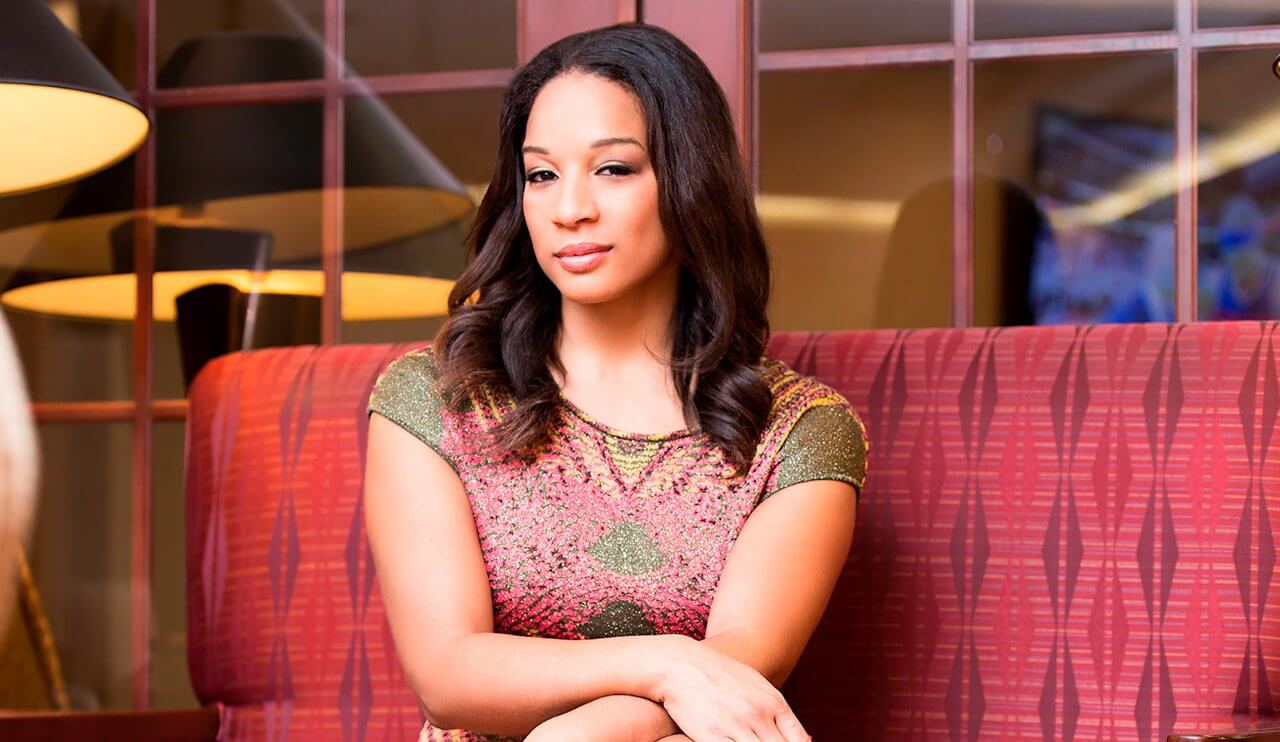How do you root out bias from your customers? It’s not as easy as making a single social media pledge—supporting diversity, equity and inclusion often requires substantial, thoughtful effort. For a company with millions of users like Airbnb, creating an equitable user experience requires a dedicated leader. With her activist background, Janaye Ingram, Director of Community Partner Programs and Engagement, spearheads real change for one of the most prominent rental platforms on the market. Bobbie Carlton, Editor-in-Chief of Lioness, sat down with Ingram at Collision to learn more about her anti-discrimination efforts.
“What gets me excited about what I’m working on is a blend of so many of my passions,” said Ingram. “I’ve spent my career in advocacy and activism. I get to bring that to my work at Airbnb, helping our product become more equitable and leveraging our relationships with external entities, civil rights leaders and partners and organizations. It’s a passion of mine to do that work at a company that has values and wants to do the right thing.”
From booking to reviewing: where bias hides
Here’s a thought experiment. What’s the harm in displaying guests’ profile pictures during the booking process? Most people would want to put a face to a name, right? It may feel more personal, but the reality is that some hosts, consciously or not, judge booking applications based on the guest’s perceived race. What if profile pictures were only revealed after the application was accepted, circumventing this issue? After this and other changes, Airbnb guests perceived as Black successfully made bookings 91.4 percent of the time, a marked increase. (Guests perceived to be white still had a 94.1 percent success rate—the highest difference found by Airbnb. Airbnb is continuing to make changes to reviews and Instant Book to address this disparity.)
Consider reservation rejections, too. Are they all for legitimate reasons, or could bias be a factor? Rejection audits and reviews can potentially spot hosts with discriminatory habits. And education resources, such as guides that help hosts make their rentals more accessible to people with disabilities, encourage inclusivity from the beginning.
Shining a light on a too-common reality
These are just some of the initiatives taken by Project Lighthouse, Airbnb’s research effort to combat racism, disparity and bias. Airbnb founded its anti-discrimination team and brought Ingram on in 2017, after lawyer and activist Laura W. Murphy led a civil rights audit of the company. Ingram’s wealth of experience lies in activism—beyond serving as an advisor for Airbnb and Sephora, she also co-founded the Women’s March in D.C. and held executive positions at several nonprofits and civil rights organizations.
“We know that discrimination happens in the world. And it happens in a place like Airbnb—that’s something we’re not okay with. For us, it’s about finding the right solutions. Not necessarily the things that may seem obvious, but really looking for the solutions that are going to move the needle,” said Ingram. “There was a need for someone to take on that role full-time. That was the opportunity that was presented to me: to bring more intentionality to it, to ramp it up, grow it and do it at another level.”
How did she decide to join Airbnb? Where does her passion for activism come from?
“God and the universe are part of the answer,” Ingram said. She initially found out about the opportunity from a mentor already involved in the anti-discrimination efforts. Their existing efforts for diversity encouraged her. She knew she could help by bringing her “full self” to work—her unique talents and expertise.
“I come to this to this work through both [lived experience and training]. I live in the world as a Black woman, so I experience the world through those lenses,” she said. “In so many ways, that has shaped my journey around wanting there to be more equity for people who look and live like me, but also for other people who have other identities and other experiences. For the world to be a more equitable place.”
What’s on the horizon for Project Lighthouse?
Airbnb’s yearly anti-discrimination report highlights improvements, but there’s more work to be done.
“More work for us to analyze that data, to engage with our civil rights partners, to continue looking for new solutions—if our current solutions are not having the intended impact—and to continue creating transparency around what we’re finding.”
It could be a daunting prospect. But for Ingram, the tasks ahead for Project Lighthouse feel exciting and motivating. Those findings will lead to real change within the platform and ensure that every guest feels welcomed to their home away from home.
Want to see more features from Collision? Read Lessons from a Creative Groundbreaker: Melissa Rosenthal, Chief Creative Officer at ClickUp.







Add Comment